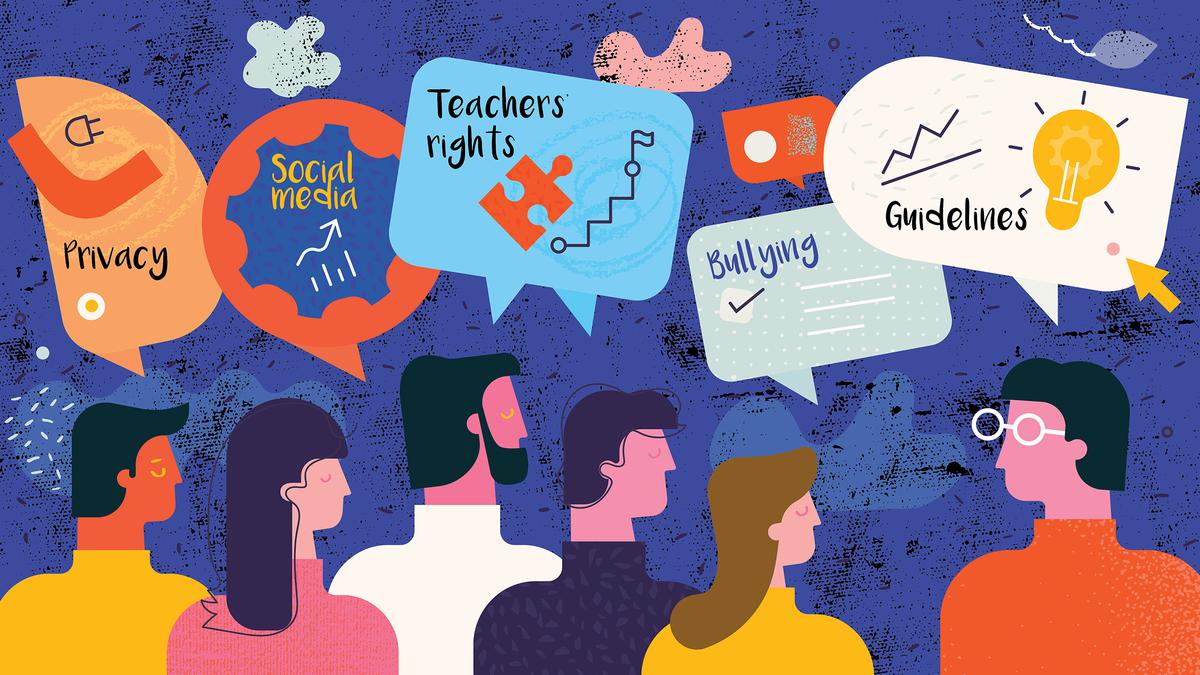
How free are our teachers?
The Hindu
How free are our teachers? On social media, that is. While laws and legislation protect students, educators are getting the short end of the stick
A week ago, I was leading a walkthrough of the NGMA (National Gallery of Modern Art) in Delhi, on nation building and the Independence movement, when I realised that many of the artists I was referring to — Nandalal Bose, B.C. Sanyal, Pran Nath Mago, K.G. Subramanyan — were teachers. As were our most famous statesmen, including Swami Vivekananda, Rabindranath Tagore, Amartya Sen, and A.P.J. Abdul Kalam.
It contrasted sharply with a story that Keira, a 16-year-old who recently moved to a school in the U.S., had told me, about how the students became disrespectful of a Spanish teacher after they found out from his social media account that he was a former waiter. Closer home, I was reminded of a former assistant professor of English in Kolkata who alleged last year that university authorities forced her to quit her job on the charges of posting ‘inappropriate’ photos of herself on her private Instagram account.
The pictures — of her in sportswear — were posted a few months before she took up the position, and despite them being on her profile for just a day (on Stories), they were allegedly found by a student. The authorities alleged that she had ‘besmirched the reputation of the university’, and when she sent them a legal notice for firing her, they sought an apology from her and compensation of ₹99 crore for ‘causing irreparable damage’ to the university’s ‘good name, fame, and goodwill’.
It sounds farcical, but this is the murky reality of what happens when there’s a lack of social media guidelines for educators.
Education in India is a massive industry. There are around 15 lakh schools and 1,050 colleges, with over 1.1 crore teachers. But the rules for this industry remain nebulous, with schools and universities prioritising themselves and their students. This often means that rather than being respected as educationists, teachers are denied their fundamental rights, such as right to freedom of speech and expression on social media.
Some rules make sense. “There are guidelines, for instance, under POCSO [Protection of Children from Sexual Offences Act] about not clicking a student’s picture without consent,” says Shubham Shukla, an educational consultant at a private academy in Bhilai, Chhattisgarh. But things aren’t always so black and white. “It’s a small town and often, after events, parents ask us to take a picture with their child and they post that. We don’t have guidelines on the usage of social media. So, we have written our own, such as no selfies with students, or how chatting on social media platforms with students must be done mindfully.”
A real problem for teachers today is the policing that occurs outside the classroom, where students and institutions expect behaviour from them that is impossible to maintain. In the U.S., many examples of this have made headlines, of late. Last year, teachers in Baton Rouge, Louisiana, protested a policy that tightly regulated what school employees could do on social media.





















 Run 3 Space | Play Space Running Game
Run 3 Space | Play Space Running Game Traffic Jam 3D | Online Racing Game
Traffic Jam 3D | Online Racing Game Duck Hunt | Play Old Classic Game
Duck Hunt | Play Old Classic Game











